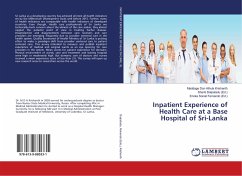This study has explored discharge planning (DP) and post-discharge follow-up care (PDFC) practice at Jimma Medical Center. The study aimed at understanding the practice of DP, PDFC at JMC psychiatry department. The study used qualitative case study research design with exploratory purpose. Participants were selected purposefully and their size determined based on the principle of data saturation point. Data were collected via in-depth interviews, focus group discussions (FGDs), document review, and observation. Thematic analysis was used for the data analysis. Securing the consent of the participants and reporting in aggregate fashion to conceal participants' identity were some of the techniques for research ethics. The finding revealed poor practice of DP and PDFC in the psychiatry clinic and gaps in having a standard PDFC program such as inadequate human power, absence of health education, inadequate medication and no community based mental health center. In addition, there is no linking strategy between DP and PDFC that exposed clients to experience non-stopping appointments, relapses, and readmissions.
Bitte wählen Sie Ihr Anliegen aus.
Rechnungen
Retourenschein anfordern
Bestellstatus
Storno








